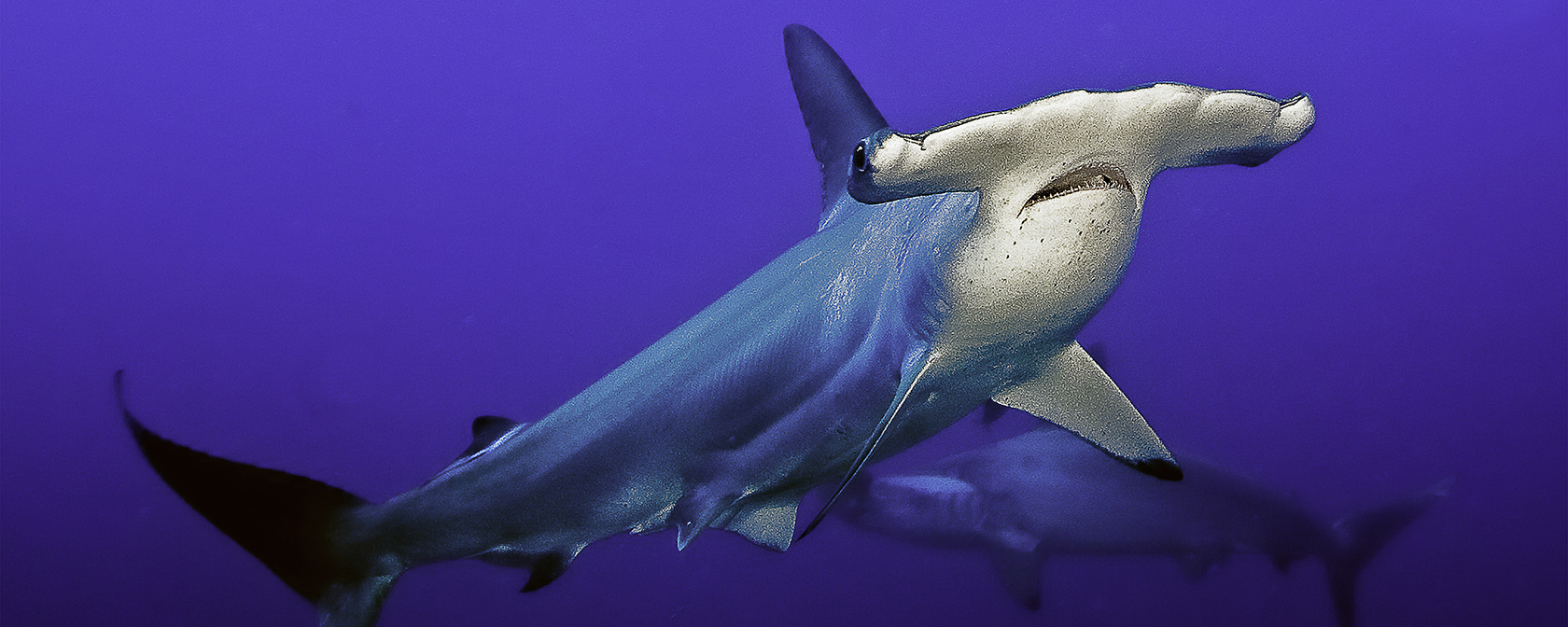By Sara Amundson and Kitty Block
A bad reputation can mean the difference between life and death for animals, and nowhere is this clearer than for sharks. Sharks may be depicted as terrifying animals in films like “Jaws,” but the true tale of horror is how humans have treated shark species for centuries across the world.
This year, for Shark Week, two new documentaries aim to raise awareness about the animals. For us, Shark Week is a great opportunity to highlight our worldwide campaign to protect sharks and to show how the Humane Society family of organizations is out there fighting for sharks every week, all year long.
The shark fin trade
Shark finning is one of the most gruesome and cruel ways to treat an animal. Fishermen often slice the fins off a shark at sea, then discard the still-living mutilated animal back in the water to drown, bleed to death or be eaten alive by other fish.
Fins from about 73 million sharks are traded on the global market each year. This no doubt contributes to the fact that a quarter of all shark and ray species are at risk of extinction. Shark populations are being decimated and they don’t have enough time or capacity to recover. This industry is largely for shark fin soup, served in various countries at weddings and other special events, usually as a status symbol due to its exorbitant cost.
A new documentary “Fin,” streaming today on Discovery+ in celebration of Shark Week, helps to shine a light on this wholesale extermination of the world’s sharks. Directed by actor and horror film creator Eli Roth, “Fin” turns the genre around to expose the shadowy shark fin trade, taking the audience on a journey through the often-disturbing facets of the product’s supply and demand.
A lack of uniform national or international laws protecting all sharks compounds the threat. The shark fin trade remains legal in too many countries, and even where sale of certain species’ fins is prohibited markets often abound with fins from imperiled shark species and other illegally obtained sharks. For example, in a 2017 genetic survey of fins sold in Hong Kong, one of the world’s shark fin trading hubs, one-third of the species represented were at serious risk of extinction. This is because it is difficult to identify the species of shark by just looking at the detached fins, because it can be hard to enforce laws against fishing sharks inhumanely or unsustainably and because labeling requirements are often inadequate to identify the species and source of the shark inadequate labeling requirements. Humane Society International advocates for increased international protections for shark species and works with countries across the globe to implement and enforce existing protections.
Shark culling
While finning may be the worst, it is not the only threat to sharks. In a misguided attempt to make oceans safer for human swimmers, two regions in Australia are culling sharks. This means that hundreds of marine animals—including whales, turtles, dolphins and rays—are killed every year in the name of “shark control,” even though culling has been proven ineffective at mitigating the risk of shark bite.
“Envoy: Shark Cull,” another new documentary on Discovery+, exposes this misguided approach and features experts from Humane Society International Australia, helping to make the case that sharks aren’t enemies who need to be extirpated but fellow creatures in need of protections. There are non-invasive technologies available to avoid shark interactions far more effectively, as well as strategies that swimmers and surfers can learn to stay safe. Killing is not the solution.
How you can help sharks
You can take action for sharks by urging your U.S. congressional representative to end the nightmare of the fin trade in the U.S. by passing the Shark Fin Sales Elimination Act. We have advocated for this legislation for several years. If it becomes law, the Act will remove the U.S. from the dark domain of the global shark fin trade by prohibiting the commercial trade of shark fins in the U.S. We are so close to success: for the first time, the U.S. Senate passed the measure as part of a broader legislative package. Now it’s the U.S. House’s turn to act.
You can also add your voice to this petition urging an end to shark culling in Australia and sign our pledge to protect sharks.
Kitty Block is President and CEO of the Humane Society of the United States.




